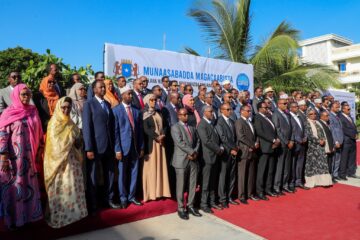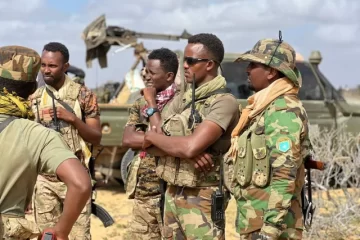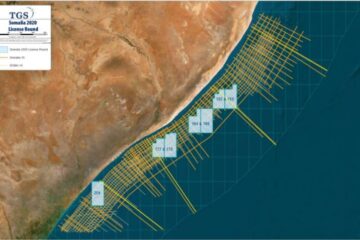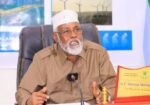Why unifying federal member states elections will serve Somalia’s stability

Since 2004, Somalia has embraced federalism as a system of governance to heal the country from years of civil war that plunged the country following the ousting of General Siyad Barre from power in January 1991.
Seen as a remedy to the vicious cycle of inter-clan rivalries fighting over power and resources, federalism was officially implemented in 2012 with the adoption of the Provisional Federal Constitution resulting in the creation of the Federal Republic of Somalia.
Since then, there has been significant progress in establishing the federal structures, particularly the creation of the Federal Member States (FMS) under Hassan Sheikh Mohamud’s first term as president between 2012 and 2016.
However, the system of governance has also been marred by disagreements between the Federal Government of Somalia (FGS) and the FMS on issues like security architecture, resource-sharing and finalizing the constitutional process, contentious issues that hamper the country’s consolidation of federalism and hence its political stability.
One key factor that will contribute toward consolidation of the federal process and promotion of stability in the country is fostering common federal arrangements like unified election timelines.
Current FMS election timelines
Somalia has different election timetables at both the federal and state levels. The main reason for this is that the federal states were created at different times. The breakaway region of Somaliland and semi-autonomous Puntland state were formed in 1991 and 1998 respectively prior to Somalia’s official adoption of federalism.
The remaining four states: Jubbaland, South-West, Hirshabelle, and Galmudug, were officially established during Mohamud’s first stint as president. This means the dates for parliamentary and presidential elections are different for different states.
As a breakaway state, Somaliland’s case in the federal structure is different. Puntland has a relatively stable parliamentary and presidential election timetable every five years set on January 8.
Election timelines in other member states are unstable but officially serve four-year terms. Parliament and President terms are set to end in January 2024 for Puntland, February 2024 for Galmudug, and 2025 for Hirshabelle. For South-West state, the timetable is disputed between December 2022 and 2023. Jubbaland’s election date is set for August 2024 after the state’s parliament recently voted to extend the term of regional president Ahmed Mohamed Islam, better known as Madobe, by an additional year. Some of Jubbaland’s senior politicians have expressed opposition to the move. The FGS has not yet issued a comment.
This means there will be elections in a particular FMS each year in the next four years. A common feature of FMS elections is that it creates rifts between the concerned FMS state and the FGS, between the opposition and the FGS, and within the FMS itself. In other words, the country, in general, will be constantly engaged in election campaigns and political wrangles instead of focusing on pressing issues such as security and drought response among others.
Multiple elections, multiple instabilities
As with all elections, there are winners and losers. In Somalia, the FGS often seeks to have an impact on the outcomes of regional states’ elections to have its favorite candidates win the elections.
Under the reign of former president Mohamed Abdullahi Farmajo, FGS-backed candidates clinched the presidency in three regional states namely: South-West, Galmudug, and Hirshabelle. These victories were rejected by key stakeholders in respective FMS that in some cases sparked armed clashes.
For instance, in South-West state, the detention of former Al-Shabaab deputy commander and current Somalia’s Minister for Endowment and Religious Affairs Mukhtar Robow in December 2018 after declaring his candidacy for South-West state presidency, sparked deadly demonstrations that saw at least a dozen civilians killed. The preferred candidate for the FGS, Abdiaziz Hassan Mohamed Laftagreen, won the state’s presidency.
In February 2020, Mogadishu-based opposition of which President Hassan Sheikh Mohamud was a leading figure, accused the FGS of engineering the election of Ahmed Abdi Kariye aka Qoorqoor as Galmudug state president.
In Jubbaland, the FGS under Farmajo administration was in open hostility with the state’s president Ahmed Mohamed Islam, better known as Madobe, over the latter’s re-election in August 2019 and later over the administration of Gedo parliamentary seats as the country was preparing for presidential and parliamentary elections. Somalia at the time accused Kenya of interfering in its domestic politics by backing Madobe.
The multiple elections in the country have set the country in an endless election cycle and stirred conflict between different stakeholders, particularly between the center and the periphery, derailing the country’s progress towards consolidating federalism. This, hence, fosters instability and diverges resources and energy away from combatting terrorism and improving the economy, to political wrangles.
Building the case for a unified election timeline for FMS
Fostering common federal arrangements is a key step toward building harmonious and cooperative FGS-FMS relations that will both consolidate federalism in the country and promote political stability.
One way the administration of President Mohamud can manage this is by uniting the election timetables of the FMS. For instance, all election timelines for member states’ elections can be matched with that of Puntland state’s parliamentary and presidential election scheduled for January 8, 2024.
Puntland is the oldest of the federal states having been created in 1998. Moreover, its election date is enshrined in its constitution, unlike other states. By aligning their election dates with that of Puntland, all leaders in other member states — except for Hisrhabelle president who might add up to two years to his mandate — will lose or gain a couple of months of their mandate.
It, therefore, falls upon the FGS leaders to lead efforts to reach a political deal with the FMS to have a unified election that will serve the country’s long-term political stability. Achieving this is also in line with President Mohamud’s vision of “Somalia at peace with itself and with the world.”
Upon his re-election as president for the second time in May, Mohamud pledged in an interview with VOA “to establish a thorough agreement between the federal and state governments to federalize essential institutions.” Reaching an agreement on a unified election for FMS will thus be a step in the right direction.








